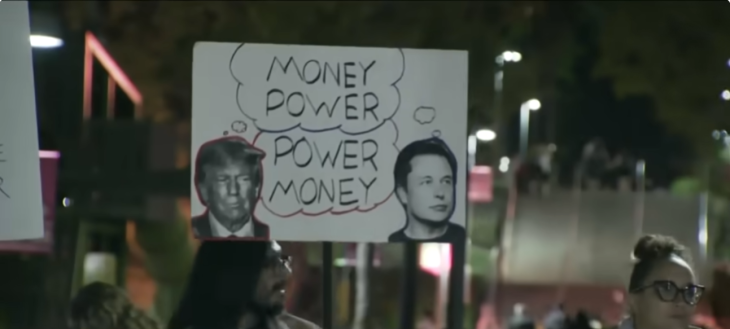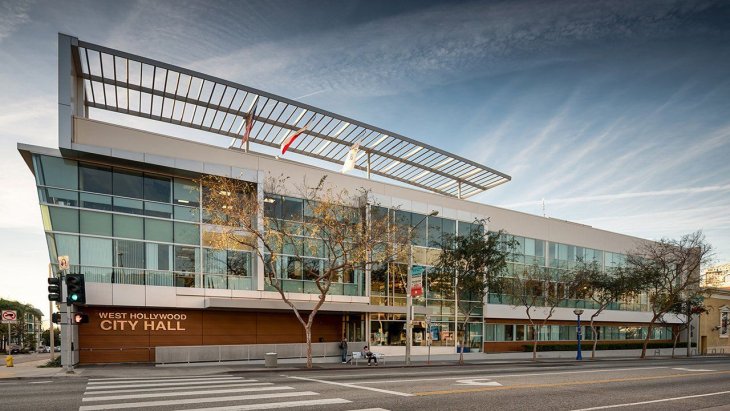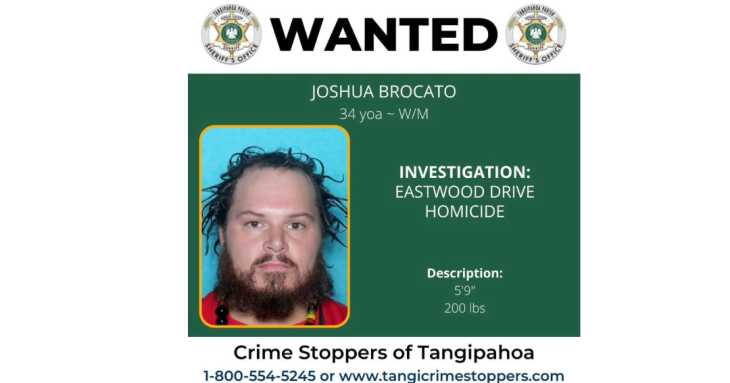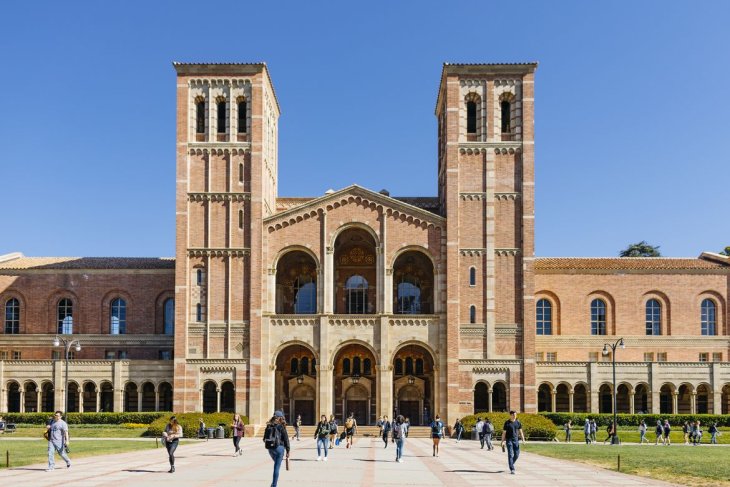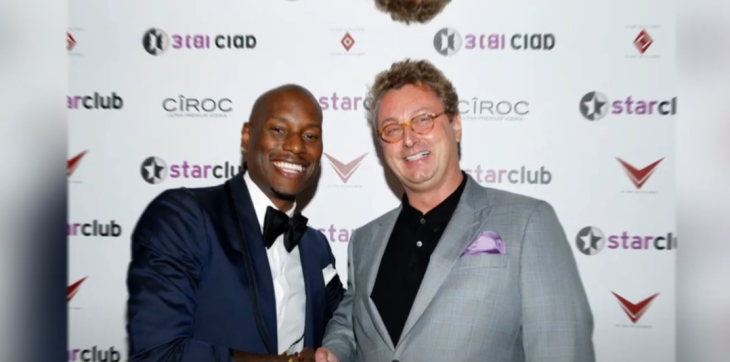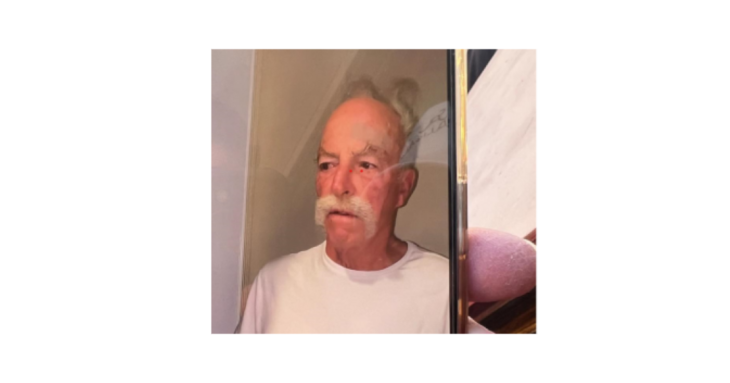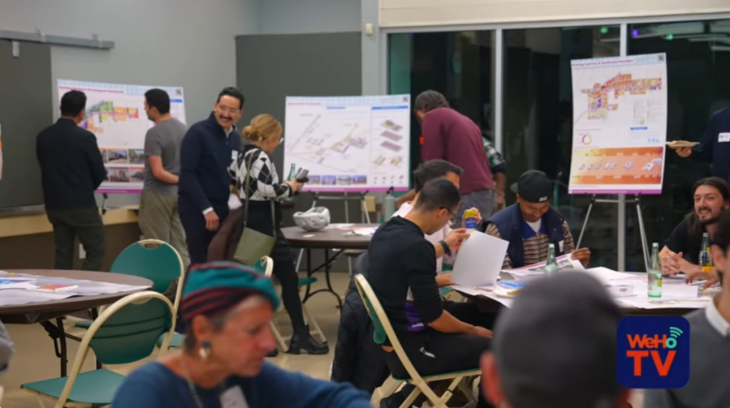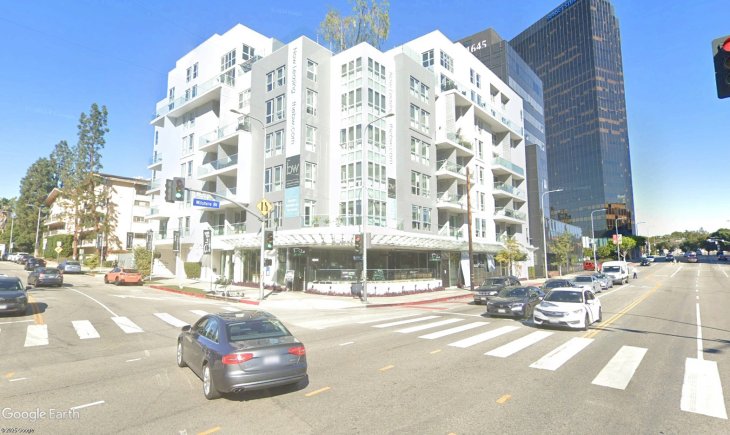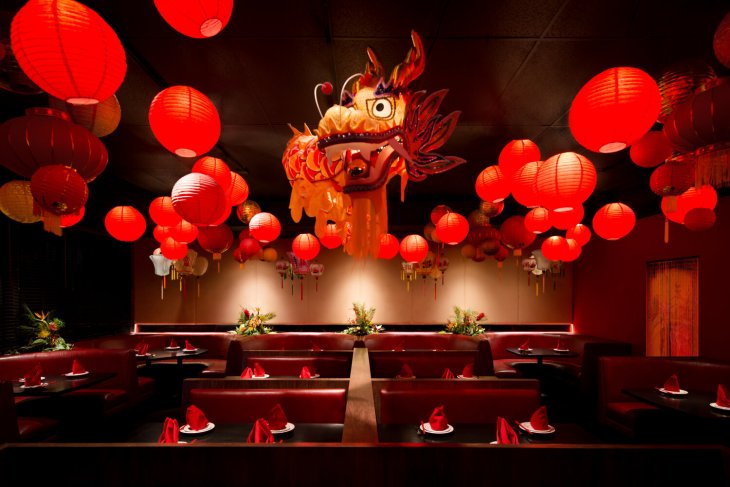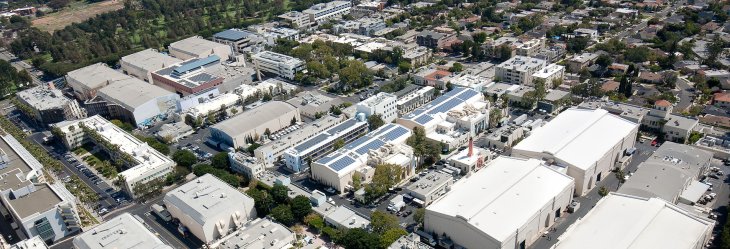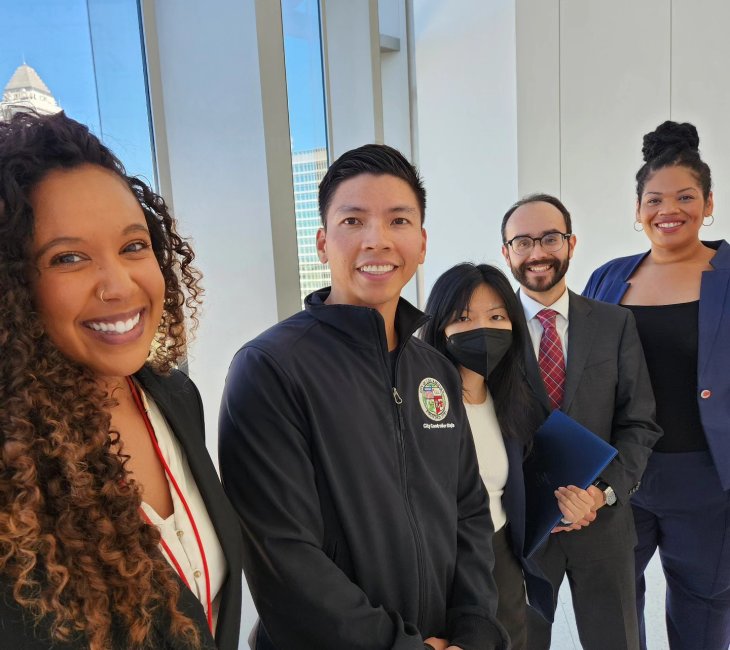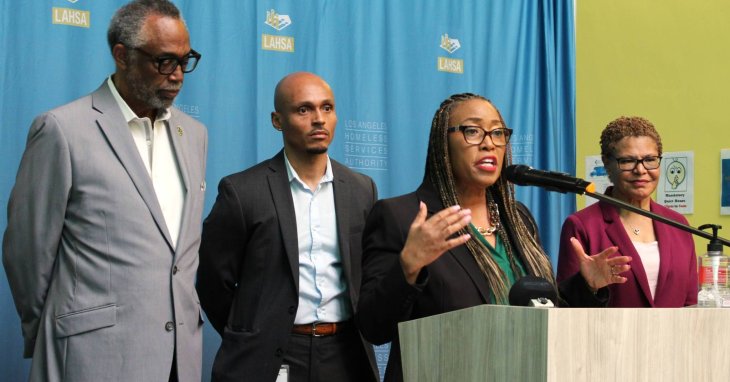
Phill Wilson: Still answering the black AIDS call at 60


BY KAREN OCAMB | Well before the AIDS activist group ACT UP publicized the slogan “Silence=Death,” Black lesbian feminist poet Pat Parker wrote “Where will you be when they come?” The 1978 poem holds a moral mirror up to the LGBT world, challenging closeted gays and lesbians to forsake the pretentious protection of silence to speak out against the slurs, attitudes and actions that demean and dehumanize LGBT people. For Phill Wilson—long-term HIV-survivor and founder of the highly-regarded Black AIDS Institute featured in the CNN docu-series, “The Eighties” who will celebrate his miraculous 60th birthday on April 23—the poem still holds profound meaning.
“Citizens, good citizens all/ parade into voting booths and in self-righteous sanctity/ X away our right to life,” Parker wrote.”
Unbeknownst to Parker, that late 70s political backlash against gay liberation was about to become an actual existential crisis for gay Americans, aided and abetted by a silent citizenry and an intentionally neglectful government as the first cases of what became HIV/AIDS hit the news on June 5, 1981. Wilson, then a 25-year-old, newly out college graduate, and his new boyfriend Chris Brownlie were both diagnosed with swollen lymph nodes, which their doctor suggested could be related to the mysterious disease. But they were not afraid: the media widely reported that “GRID” (Gay-Related Immune Deficiency) was a white gay disease on the East and West coasts, or was contracted through poppers or by contact with “sexual athletes”—none of which they thought pertained to their lives in Chicago.
“Our doctor didn’t know much. No one had any information,” says Wilson. But then members of their gay softball team got sick and died in a matter of weeks. “That’s when it became real.”
Wilson and Brownlie moved to Los Angeles in the spring of 1982, started a Black giftware company and got involved in the organization Black and White Men Together. “That’s when it got scary,” he says. “We had four or five friends sick at a time and we realized that nobody gave a damn. Either we were going to die or we were going to have to fight, and still we might die. Die or fight or both. I had just met Chris. I had just found myself. I wasn’t ready to let either go. So, we fought to make sure we did whatever we could to not die—and to make sure our friends did not die.”
It was a jarring epiphany—but Wilson was spiritually prepared for the fight. “When you are a poor Black kid in the 1950’s living in a housing project on the south side of Chicago, there is a lot your parents can not do or provide,” Wilson says. “But what they can do is to make sure you know that you are loved and you matter. That is what my parents did for me, my brothers and my sister. They knew they could not shield us from a racist world. Eventually we would hear messages that we were not OK—that we were the wrong color, our hair was wrong, or our noses were too broad. So they made sure we had some internalized protection—kind of like ‘PrEP’ for the spirit.” He chuckled. “They wanted us to know our lives were worth fighting for.” Provided with a certain level of confidence, he was able to go out into the world “with a clearer idea of who I was.”
More importantly, Wilson says, his parents gave him a sense of responsibility for helping and understanding others, and an appreciation of his own “privilege.” When Wilson and his neighbor started kindergarten together, he already knew how to read and tie his shoes. His friend, the middle child of 8 kids, a girl and dark, was not as prepared and was ignored by teachers while Wilson was perceived to be “cute” and favored. “My friend couldn’t do a lot of things. So I took it upon myself to help her,” Wilson says.
But the teachers disapproved and separated them. Wilson told his parents how upset he was “It was the first time I realized that people could be treated differently because of the way they looked.” She eventually dropped out of school and became a teenage mother. “I blamed that kindergarten teacher,” he says. “To this day, I believe I could have helped her.”
Survival and mutual responsibility are at the heart of the message Wilson conveys in his fight against AIDS, starting in 1983 when he read Pat Parker’s poem at an AIDS Candlelight vigil he helped organize in Los Angeles. In 1986, Wilson volunteered to fight against the horrific Proposition 64 AIDS quarantine initiative sponsored by anti-gay right winger Lyndon LaRouche—an initiative many feared would lead to branding, rounding up and putting people with AIDS into concentration camps.
After the initiative’s defeat, Wilson and Brownlie worked with Michael Weinstein, Mary Adair and others to found the AIDS Hospice Foundation—later to become the AIDS Healthcare Foundation, launching what would become a spectacular thirty-year national career fighting for LGBT and Black civil rights and for people with HIV/AIDS. His first job was as the director of Stop AIDS Los Angeles, then director of public policy and planning for AIDS Project Los Angeles, co-founder of the Black Gay & Lesbian Leadership Forum, AIDS Coordinator for the City of Los Angeles, member of the President’s AIDS Advisory Council, renown guest on TV talk shows, including Oprah Winfrey, and today, the nation’s conscience as the founder of the Black AIDS Institute.
Few actually know how hard Wilson has personally fought to stay alive, taking every HIV drug as it became available (AZT, 3TC, D4T, and others), as did Brownlie, who succumbed to AIDS in 1989. In 1997, Wilson landed on death’s door but refused to believe it was his time to die. The miracle of combination drug therapy saved his life, as it did for countless others—leading some to believe that the AIDS epidemic was over. But AIDS is still a crisis in Black and Latino communities. According to the Centers for Disease Control, in 2014, 44% of estimated new HIV diagnoses were among Black, who comprise 12% of the US population; an estimated 73% were men and 26% were women; 57% were gay or bisexual men, and of those, 39% were young men aged 13 to 24.
“Our house is on fire,” Wilson trumpets at every opportunity, hoping his community will hear and fight back, asking as Pat Parker might: Where will you be when HIV comes?
The Black AIDS Institute is holding a fundraiser in celebration of Phill Wilson’s 60th birthday on Saturday, April 23. There will be entertainment, surprise celebrity guests, and a roast. When asked what he wanted for his birthday, Wilson said: “I want to raise a lot of money for the Black AIDS Institute. I would like for all of my friends, family, and anyone who I’ve ever touched in anyway over the last 60 years to help the Black AIDS Institute finally end the AIDS epidemic in our community.” Go to http://60.eventbrite.com for tickets, or Phillwilson60.com to see photos of Wilson through the decades and make a donation.

